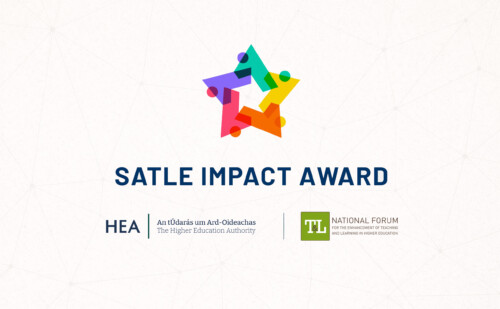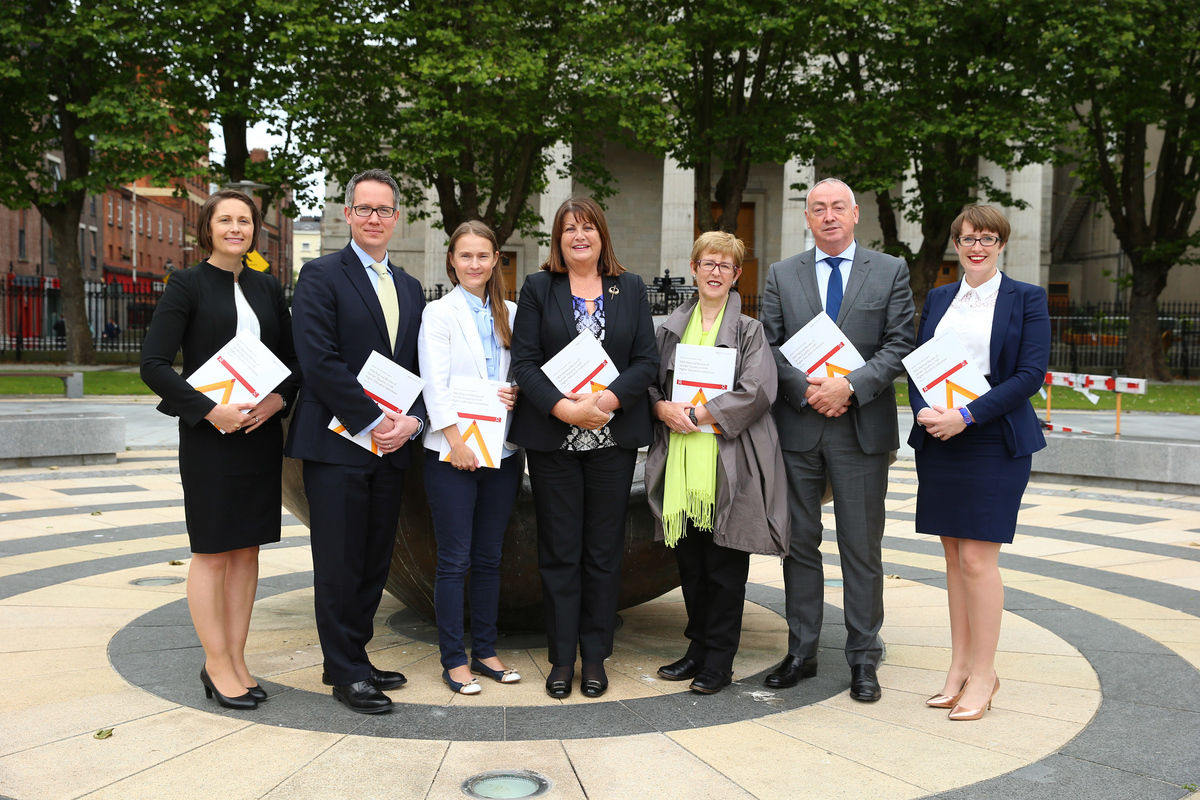
13 January, 2026
By Maura O'Shea
Posted: 27 June, 2016
Higher education institutions will risk funding being withheld if they fail to address gender inequality in the coming years.
That’s one of the outcomes of a report published today (27.06.16) on gender equality in higher education. The report was compiled by the Expert Group commissioned by the Higher Education Authority (HEA) to undertake a national review of gender equality in higher education institutions. The Expert Group was chaired by Máire Geoghegan-Quinn.

Dr Gemma Irvine (Head of Policy and Strategic Planning at the HEA), Ryan Shanks (expert group member), Dr Helen Peterson (expert group member), Máire Geoghegan-Quinn (chair of the expert group), Professor Pat O’Connor (expert group member), Tom Boland (CEO of the HEA) and Dr Maeve O’Riordan (HEA)
The gender equality review began in September 2015, and the report published today includes objectives, recommendations, proposed timings and key performance indicators for all relevant stakeholders in the higher education sector. It also contains an in-depth analysis of the gender balance of higher education staff across all grades of employment, as well as management teams, academic councils and governing boards.
Commenting today, Ms. Geoghegan-Quinn said:
“This report clearly demonstrates that significant gender inequality remains in higher education, and this must be addressed – for equality, social and economic reasons.
In undertaking this review, we quickly realised that the ‘fix the women’ approach – aimed at getting women to change to fit the existing culture – will not work. Gender balance in top leadership positions will not be achieved in our lifetimes if we just wait for change to naturally occur.
The fact that women are not found in the same proportion as men in the most senior positions in higher education institutions is not because women are not talented or driven enough to fill these roles; it is because numerous factors within the institutions – conscious and unconscious, cultural and structural – mean women face a number of barriers to progression, which are not experienced to the same degree by men. Our review shows that systematic barriers in the organisation and culture within institutions means that talent alone is not always enough to guarantee success.
As a result, our recommendations focus on how organisation and culture must change to achieve gender equality. The recommendations are deliberately ambitious and radical. They recognise that productivity cannot be maximised without full development of the workforce. Achieving gender equality will require genuine, long-term commitment and investment from managers at every level, and this must be led from the top, with the ultimate responsibility for its achievement sitting with the Presidents of the higher education institutions.”
In the report published today, the Expert Group recommends that:
Commenting today, Tom Boland, CEO of the HEA, said: “The requirement for higher education institutions to promote gender balance among students and staff, and for the Higher Education Authority to promote the attainment of equality of opportunity, is enshrined in law.
“While the institutions have, to varying degrees, sought to address gender inequality in the past, the intractable under-representation of women among staff at senior levels clearly signals the need for new, even radical, approaches to tackling this issue.
The HEA strongly endorses the findings and recommendations of the Expert Group that conducted this review. Over the coming months, we will continue to liaise with the Department of Education and Skills, the higher education institutions, research funding agencies and other key stakeholders to develop a detailed implementation plan. The plan will include a robust system of follow-up evaluation and performance monitoring linked to funding through the HEA’s strategic dialogue process”.
HEA Gender Key Facts and Figures